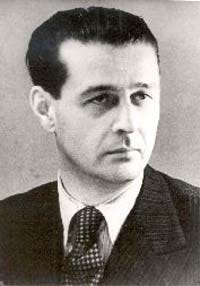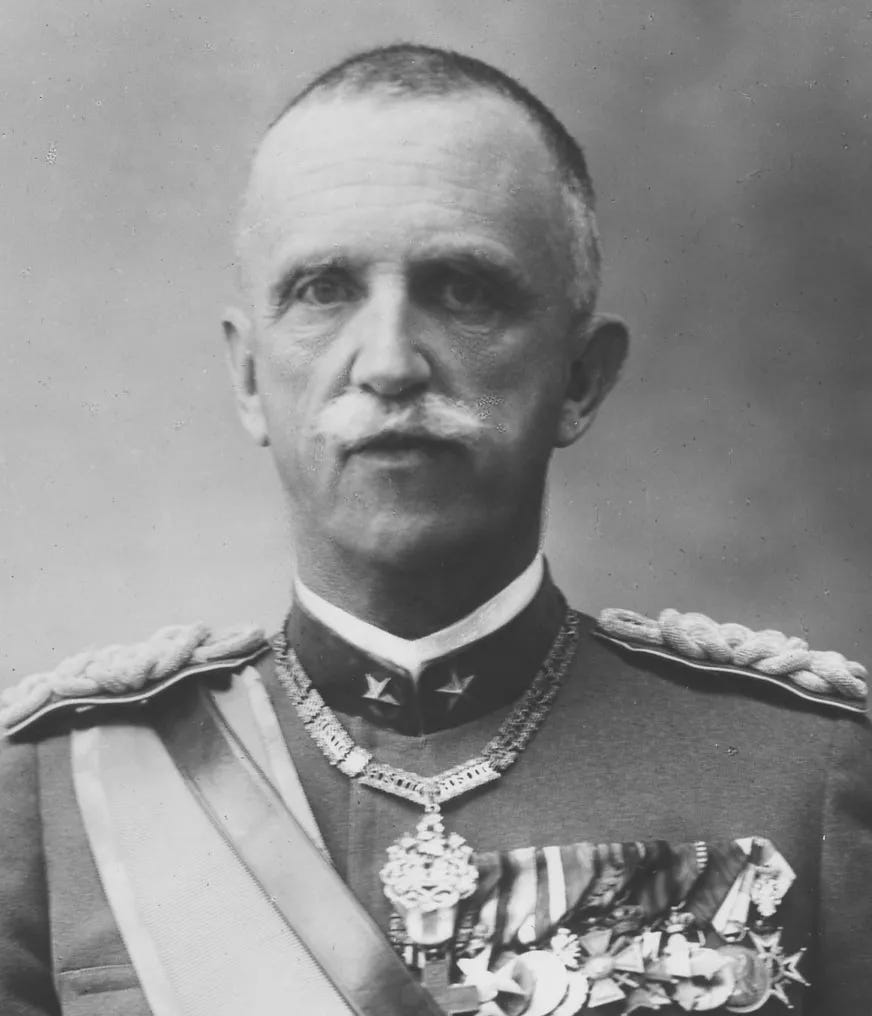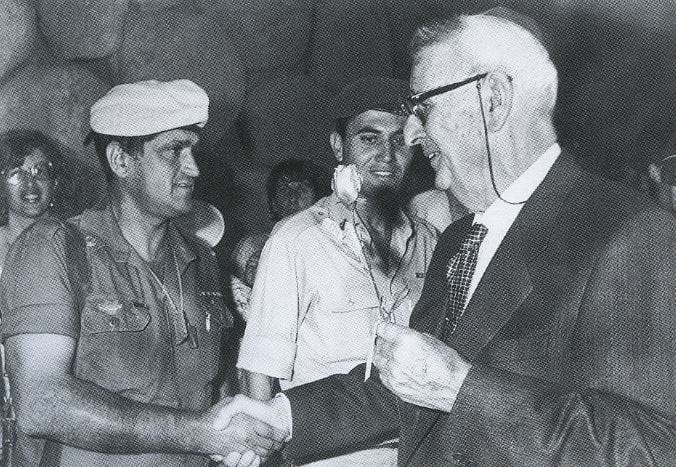So have you heard the one about the Italian cattle dealer who posed as the Spanish consul to Budapest and saved over 5,000 Hungarian Jews from deportation to the camps? Because I had not, and WOW.
I came across this guy in the midst of other research, and since he doesn’t fit into my book he WILL fit into this newsletter, damnit.
His name was Giorgio Perlasca.
He was born in Como in 1910, and early on he supported Italian fascism. (Not a great start, but bear with me.) He was one of the Italians who fought for Franco in the Spanish Civil War. Back in Italy, he was rewarded with various diplomatic positions.
He was deeply alarmed by the German racial laws of 1935, then became completely disillusioned when Mussolini allied with Hitler the next year, and decided he was loyal only to the king of Italy. (Got to be honest here, I had kind of forgotten that Italy still had a king at that point.)
He later said, “I was neither fascist nor anti-fascist; I was anti-Nazi.”
At the start of WWII, Giorgio was put in charge of procuring meat for the Italian army and given diplomatic status so he could travel, for meat-related-purposes.
So he’s in Hungary in November of ‘43 when Italy surrenders to the allies, which means he’s now an enemy. Hungary, not under Nazi control yet but basically allied with Germany, sends him to a castle reserved for diplomat prisoners.
After a few months, he managed to get a medical pass that allowed him to travel within Hungary. Instead of seeking medical help (wow, that leg magically healed itself!) he showed up at the Spanish Embassy and showed them a paper he’d received after his service in the Spanish Civil War, promising Spain’s protection. A Spanish diplomat named Angel Sanz-Briz took him in and gave him both a job and Spanish citizenship. Giorgio’s new name, on his new Spanish passport, was Jorge. Since Spain was neutral in the war, he was now free.
Sanz-Briz, also known as “The Angel of Budapest,” had this brilliant scheme going: He convinced the Hungarian government that Spain had granted citizenship to Sephardic Jews descended from those exiled from Spain in 1492. This was partly true; something like this had happened in 1924, but it only lasted till 1930. So he started issuing Spanish passports to any Hungarian Jews who said they were Sephardic. He got them safe passes and “extraterritorial” houses, basically little islands of Spain inside Budapest. Perlasca helped with all this.
1944 was… not a good year. In October, the Germans replaced the Hungarian regent with the head of the virulently antisemitic Arrow Cross party, and this is when the deportations and executions began in earnest. 440,000 Jews from the countryside were deported to Auschwitz, and 200,000 were left in Budapest.
Sanz-Briz refused to cooperate with the new government, and then needed to run for his life. He offered to take Perlasca with him to Switzerland, but Perlasca refused and stayed. With no official Spanish representative left in the country, the authorities ordered the evacuation of the safe houses of the “Spanish” Jews. All the work was about to be undone.
So Perlasca, one of the last people left in the embassy, thinks fast and introduces himself to the Minister of the Interior as the new Spanish consul-general, appointed by Sanz-Briz with the backing of Madrid. The Hungarians can’t tell an Italian accent from a Spanish one, and the guy seems legit.
From December 1st to January 16th, he hid, fed, and issued safe passes to over 5,000 Jews.
Around this time, he learned about a plan to demolish the Budapest Ghetto with 60,000 people inside it (basically what had been done in Warsaw). He demanded a meeting with the Minister of the Interior and explained that there were at least 3,000 Spanish citizens in the ghetto, and they could expect hell from his bosses in Spain if those Spanish citizens were harmed. It worked.
The Red Army was circling the city by then, and the Siege of Budapest lasted into February, when the Soviets overtook the city. Sometime in 1945, Giorgio returned to Italy.
And never told a soul what he’d done.
After the war, a group of Hungarian Jews kept searching for him to thank him. Only they were looking for a Spanish consul named Jorge, so it took until 1987 to track him down.
And suddenly, he’s famous. Interviews, news stories, an Italian movie, a symphony composed in his honor, etc. His own family had had no idea.
If you want to read more about him (and the orchestral piece), this Times of Israel article is a good starting point.
The book I’m starting to write is not about Hungary (or Italy, or Spain) but it is about that time period, and I’ve been focusing so much on the harm one person can do. It’s been good for me to stop and think about the inverse.
Happy holidays and a happy new year to all… Let’s break some rules for good in 2023.












One of those stories I did learn doing research on my own script, which starts with a Spanish pilot flying French Jews over the border to Spain with a plane stolen from Franco's airforce. To my knowledge, that never happened, but I figured it's no less unbelievable than Perlasca's story. In fact, that's why WWII is such a great backdrop for fiction, because if you can imagine it, it probably did happen, as did each of tens of thousands of equally extraordinary accounts of escape and survival, each more jaw-dropping than the next.
Wonderful story.
It reminds me of the true story of the Japanese ambassador who allowed Russian Jews to flee the country by giving them passports or other legal documents allowing them to travel.
Alas, I forgot the details, but not the story of the remarkable Japanese ambassador.
As I light my menorahs and think about those who celebrate Christmas and other holidays, I thank you for bringing another light on the holocaust’s nightmares, Rebecca.